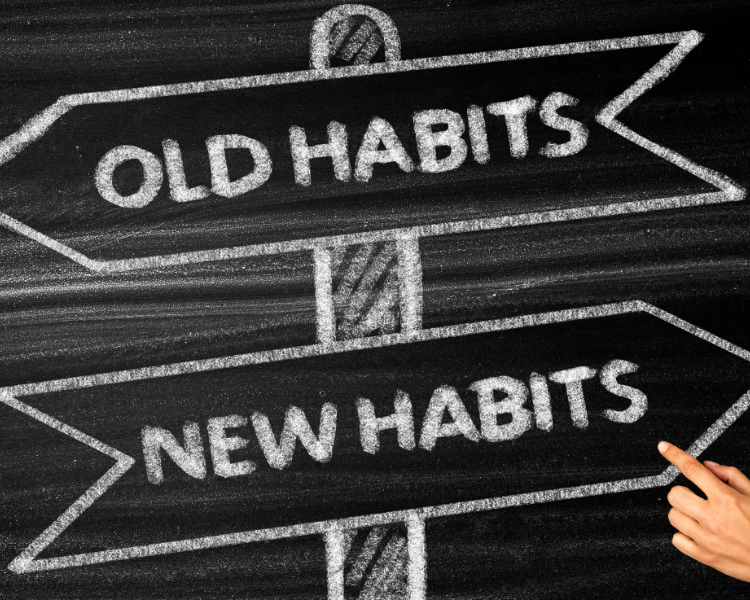Subscribe to our newsletter to stay up to date with the WeStrive Blog & Podcast


In the dynamic and fast-paced world of personal development, habit coaching has emerged as a powerful tool for unlocking human potential and achieving lasting success. As we embark on the journey of 2023, it's the perfect time to explore the art of habit coaching and discover how you can become a skilled habit coach. This blog will delve into the essential elements of habit coaching, providing insights, strategies, and tips to help you excel in this rewarding field.
--
Erin Laverone, founder of Habit Coach Pro, breaks down how the coaching industry has changed.
Before, she writes, "the education and expectations of many health and fitness related coaches were fairly low" with coaches getting 20-minute degrees online or only needing to pass with a 62.5% on a course (Side note: I actually took this test in high school and got a 62%).
What does the future hold? Coaches will need to provide their clients with "the knowledge, skills, and tools to allow them to succeed in reaching their health and fitness goals, and to make it easier for them to do so."
One powerful tool you can add to your arsenal to help them? Habit coaching.
Here are 10 tips on how to become a good habit coach.
To become a good habit coach, it's crucial to grasp the foundational concepts of habits. Familiarize yourself with the habit loop - cue, routine, reward - and study the science behind habit formation. This understanding will serve as the bedrock of your coaching journey
Being a habit coach requires a deep sense of empathy and active listening skills. Practice compassionate communication to establish trust with your clients. Understand their unique challenges, motivations, and goals. By fostering a safe and supportive environment, you can effectively guide them toward positive change.
Behavior change is at the core of habit coaching. Explore various behavior change models and methodologies, such as the Transtheoretical Model or the Stages of Change model. Acquire knowledge in psychology, neuroscience, and human behavior to better understand the complexities of habit formation and modification.
One size does not fit all in habit coaching. Every client is unique, and their needs and goals will vary. Learn to design personalized coaching programs that align with each individual's circumstances and aspirations. Tailor your strategies, techniques, and interventions accordingly to maximize their chances of success.
Accountability and support are vital components of habit coaching. Encourage your clients to set clear goals and establish accountability measures. Regular check-ins, progress tracking, and feedback loops will help them stay on track and motivated. Be their cheerleader, providing support and guidance throughout their habit change journey.
To be an exceptional habit coach, commit to continuous learning and staying up-to-date with the latest research and trends. Attend workshops, conferences, and seminars related to habit formation, behavior change, and coaching methodologies. Engage with professional communities, seek mentorship, and embrace opportunities for growth.
A growth mindset is essential for both habit coaches and their clients. Embrace challenges, view setbacks as opportunities for learning, and foster resilience. Encourage your clients to adopt a growth mindset as well, empowering them to persevere through obstacles and embrace personal growth.
Effective communication and motivation are the pillars of successful habit coaching. Enhance your communication skills to convey information, provide feedback, and inspire change. Master motivational techniques like positive reinforcement, goal setting, and creating intrinsic motivation within your clients.
In the digital age, leverage technology and tools to augment your habit coaching practice. Utilize habit tracking apps, productivity tools, and online platforms to enhance client engagement and accountability. Stay abreast of technological advancements that can support your coaching journey.
Lastly, remember that no habit coach is an island. Seek collaboration with fellow coaches, professionals, and experts in related fields. Embrace opportunities for continued growth through mentorship, peer coaching, and ongoing education. By fostering a supportive network, you can excel as a habit coach and make a more significant impact on the lives of your clients.
Becoming a skilled habit coach in 2023 requires dedication, continuous learning, and a genuine passion for helping others. By understanding the foundations of habits, honing your coaching skills, and embracing technological advancements, you can unlock the doors to success for yourself and your clients. Let your journey as a habit coach be a transformative experience, empowering individuals to create lasting positive change in their lives. Together, let's unlock success in 2023 and beyond!
--
Are you new to personal training? Read these articles to get started on growing your business:
Want to start training online? Sign-up on WeStrive and start growing your business instantly - train.westrive.com/signup
http://train.westrive.com/signup
About the Author:
Cory McKane
Cory is a huge fan of fitness - and an even bigger fan of helping you with your fitness. He’s started on his journey with WeStrive back in 2015 and has been building it ever since.
